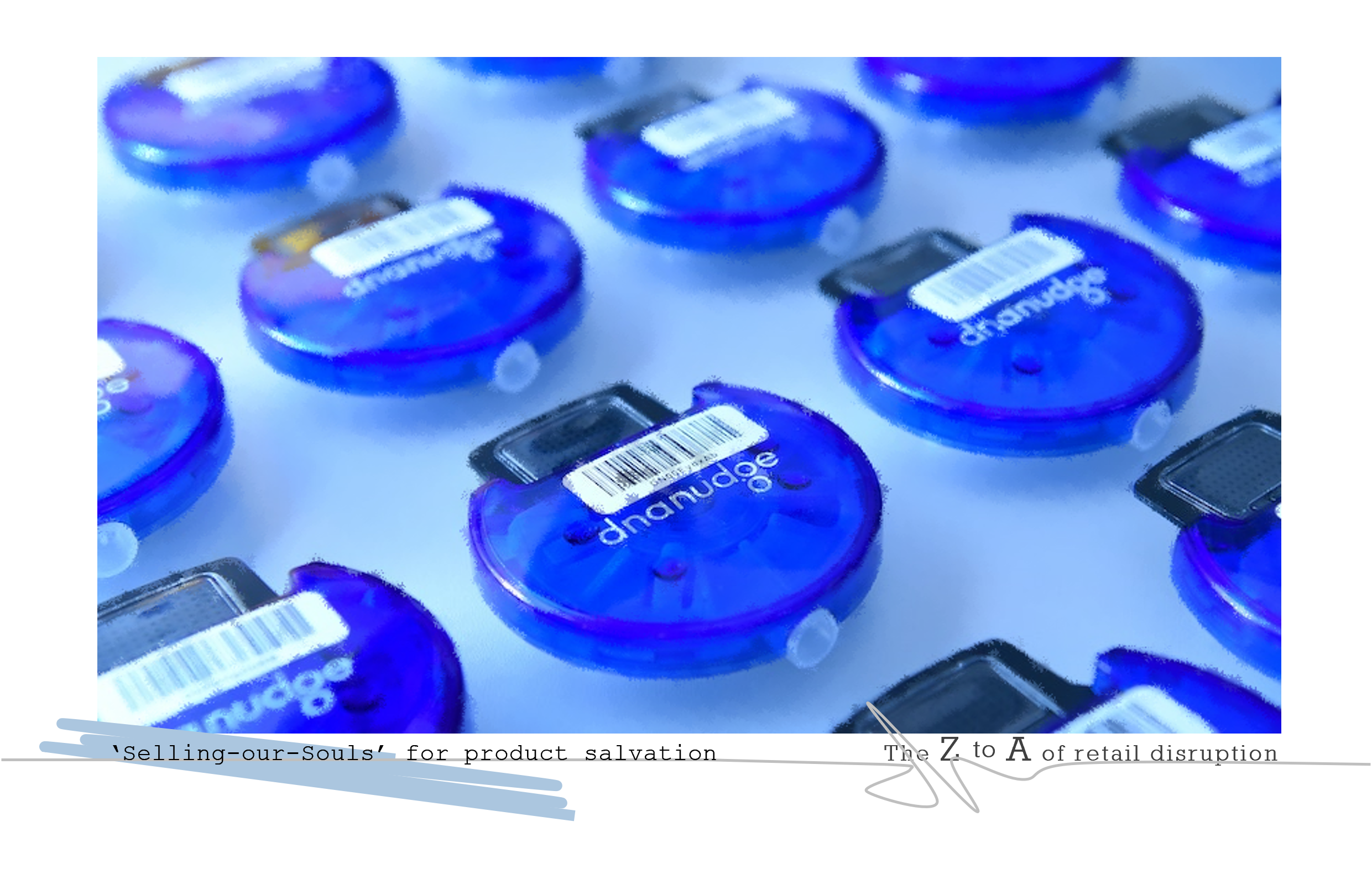‘Selling-our-Souls’ for product salvation
Certainly, for those amongst us not born with a mobile in our hands, the thought of giving away our personal data and intimate thoughts and activities to brands and retailers sometimes seems quite shocking, intrusive at the very least. We spend our lives opting out of data sharing whenever we take on the latest apps, beginning any new involvement with brands and retailers on the data back-foot.
However, two recent discoveries clearly show to me the benefits of sharing our data.
The brand example you will probably be more familiar with comes via the new Nike Rise shop in Westfield London. Nike has for many years been inviting customers to join its loyalty programmes and apps. The relationship has taken the familiar journey, from loyalty benefits and rewards, to detailed data collection. Nike has used that data wisely and through detailed analysis of customer leisure & sports activities, personal performance patterns and levels, it can now even assess our health & fitness wellbeing.
Of course, there are specialist fitness apps that can do this as well. But you really see the added customer, and brand benefit, when the data and analysis is linked to the actual clothing and equipment that help you produce the data in the first place. In the consumer goods retailing world that is where the Nike Rise shop comes into its own.
Customers who have bought into, in every sense, the Nike metaverse, use their mobile app to scan products. The data analysis & user profiling is used intelligently and accurately, not only to recognise the broad selection of individual products that are relevant to each customer, for example they run for leisure, are not too fast, and seem to like colourful shoes; but to specify precisely why the features, mechanics, and specifications of any running shoe, for example, is individually appropriate to that customer. This may include considerations of width, sole shape, weight, balance, durability, distribution of pressure and support, linked as much to the customers feet, ankles, knees and other physical anomalies, as to how far they run and how often.
Now I am a big advocate of customer service. And even in this data charged scenario I believe a human being is still essential. Because with all the performance data in the world you still need to make sure you are wearing the correct size. But this buying process does show to me the value of technology and people together. Apart from which, I would rather the app knows every detail of my anatomy and performance than the shop colleague, especially that it takes me half an hour to run to the nearest bus stop, and I need to sit down to tie my laces.
The value of data openness was also shown to me recently in a unique shop in Covent Garden, DNANudge. This is a joint venture driven by Imperial College, and is about as far as it can go when it comes to sharing your data. The data you give is your DNA, handing over the most individual and personal of secrets.
Most high street medical assessments and tests allocate people into a number of broad health and wellbeing boxes, from lactose intolerant to allergies and reactions caused by chemicals and ingredients. However, this DNA testing, taken from a cheek swab in store, creates an absolute individual profile of what makes you feel well, or unwell.
The really clever part is that your profile is kept in your app, on your mobile or on a wristband, that allows you to scan a huge variety of product barcodes. 500,000 at the last count. Seemingly identical, or similar, products, that we would expect to react with us in the same way, may in fact have quite different effects due to subtle and hidden differences in the depths of the ingredient lists. So as customers we can see precisely what to buy and what not to buy, through a traffic light system. Imperial is continually analysing many more hundreds of products. Clearly this sharing of data is for our benefit. Nowhere to hide or misinform for consumer brands and their products.
My message from these experiences is simple. It is correct and sensible to be watchful over who we give our data to, but perhaps we should not always be so cynical when we are asked to share our details.
Good brands need and want to develop happy customers. We become loyal and are worth the most to them, financially but also as advocates. And clearly the way to achieve this patronage is not to prioritise data for short term consumption through offers & vouchers, but through a lifetime of perfect purchases, where our data and its analysis works for the good of all.
Now that’s a thought to ponder when you next scan your clubcard, or advantage card, at the ‘meal-deal,’ ‘pay-as-you-go’ supermarket till.
Who is helping who, in the world of consumer data analysis.
